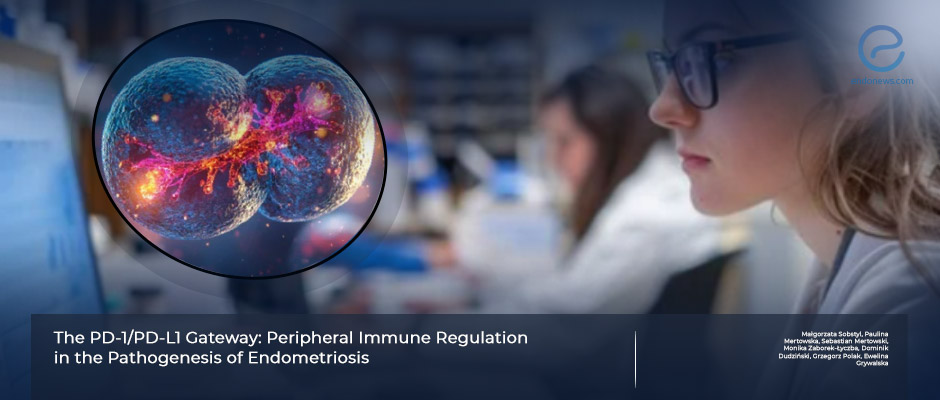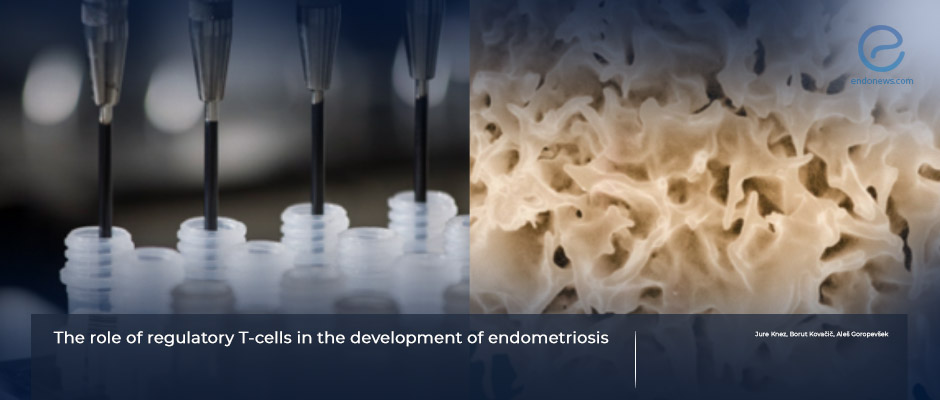Unviling the role of PD-1-PD-L1 Pathway in Endometriosis Progression and Therapy
The role of immune system in Endometriosis, a chronic inflammatory disease is complex, involving both protective and harmful effects. A key player in this process is PD-1 (programmed cell death protein 1), a protein found on T cells that regulates immune responses by inhibiting…
Key Points Lay SummaryRegulatory T cells influence on endometriosis development
While the exact cause of endometriosis is still debated, various theories are being investigated. One approach focuses on the immune system. Regulatory T-cells (Tregs) are crucial in suppressing inflammatory immune responses and preventing autoimmune diseases, allergies, infections, and cancer. Knez…
Key Points Lay SummaryA call for mast cells from endometriotic lesions
Endometriosis is a well-known hormonal-dependent inflammatory disease. But what type of inflammatory cells is responsible, and when does estrogen take part, are questions that have not been answered yet. In the study conducted by Alison McCallion et al, the role…
Key Points Lay SummaryEnhanced local and systemic inflammatory cytokine mRNA expression in women with endometriosis
Endometriosis is not only characterized by the implantation of endometriotic tissue outside of the uterine cavity but also necessitates an impaired immune response. It is suggested that abnormal immunological mechanisms causing the dysfunction of immune cells and their mediators are…
Key Points Lay SummaryControl on endometriosis progression by a "tyrosine kinase inhibitor"
B cells, which are important players of the immune system, are increased in the blood and peritoneal cavity of endometriosis patients. Activation of B cells and the presence of anti-endometrial autoantibodies have been also been described in women with endometriosis,…
Key Points Lay SummaryAltered Immunity in Endometriosis
In recent years, there has been increased attention on the role of immune system in endometriosis development. Normally, immune reactions are supposed to destroy endometrial cells seeding in the peritoneal cavity. Nonetheless, in endometriosis, these cells are able to evade,…
Key Points Lay SummaryMenstrual Effluent Can Change the Future of Endometriosis
During Endometriosis Awareness Month, Warren et al. published a paper entitled “Analysis of menstrual effluent: diagnostic potential for endometriosis” in Molecular Medicine. This paper relies heavily on the theory of retrograde menstruation, where menstrual effluent flows into the peritoneal cavity.…
Key Points Lay SummaryAnalysis of suppressive regulatory T cells and latent transforming growth factor-β-expressing macrophages in endometriosis peritoneal fluid
One prominent theory of endometriosis origin is the implantation of steroid hormone-sensitive endometrial cells and tissues on the peritoneal surface during retrograde menstruation and caused an inflammatory response. While women exhibit retrograde menstruation, endometriosis may be affected by women suffering…
Key Points Lay SummaryIncreased Period Pain in Endometriosis Is Linked to Estrogen
Researchers in China shed light on the mechanism of how the female sex hormone estrogen may be linked to increased period pain in women with endometriosis. A better understanding of the biological mechanism leading to pelvic pain in endometriosis could…
Key Points Lay SummaryImmune Response in Endometriosis and Regulatory T cells
The adaptive immune system is crucial for many diseases. Lymphocytes, including T cells, are particularly important in the adaptive immune system. Previous research suggested that defective immune response could play a role in endometriosis. The hypothesis proposes that the immune…
Key Points Lay Summary

 By Eylül GÜN
By Eylül GÜN

 By Bahar Yuksel
By Bahar Yuksel

 By Ellen Tumimbang
By Ellen Tumimbang

 By Irem Onur
By Irem Onur

 By Yu Yu
By Yu Yu

 By Kasthuri Nair
By Kasthuri Nair


 By Özge Özkaya
By Özge Özkaya
